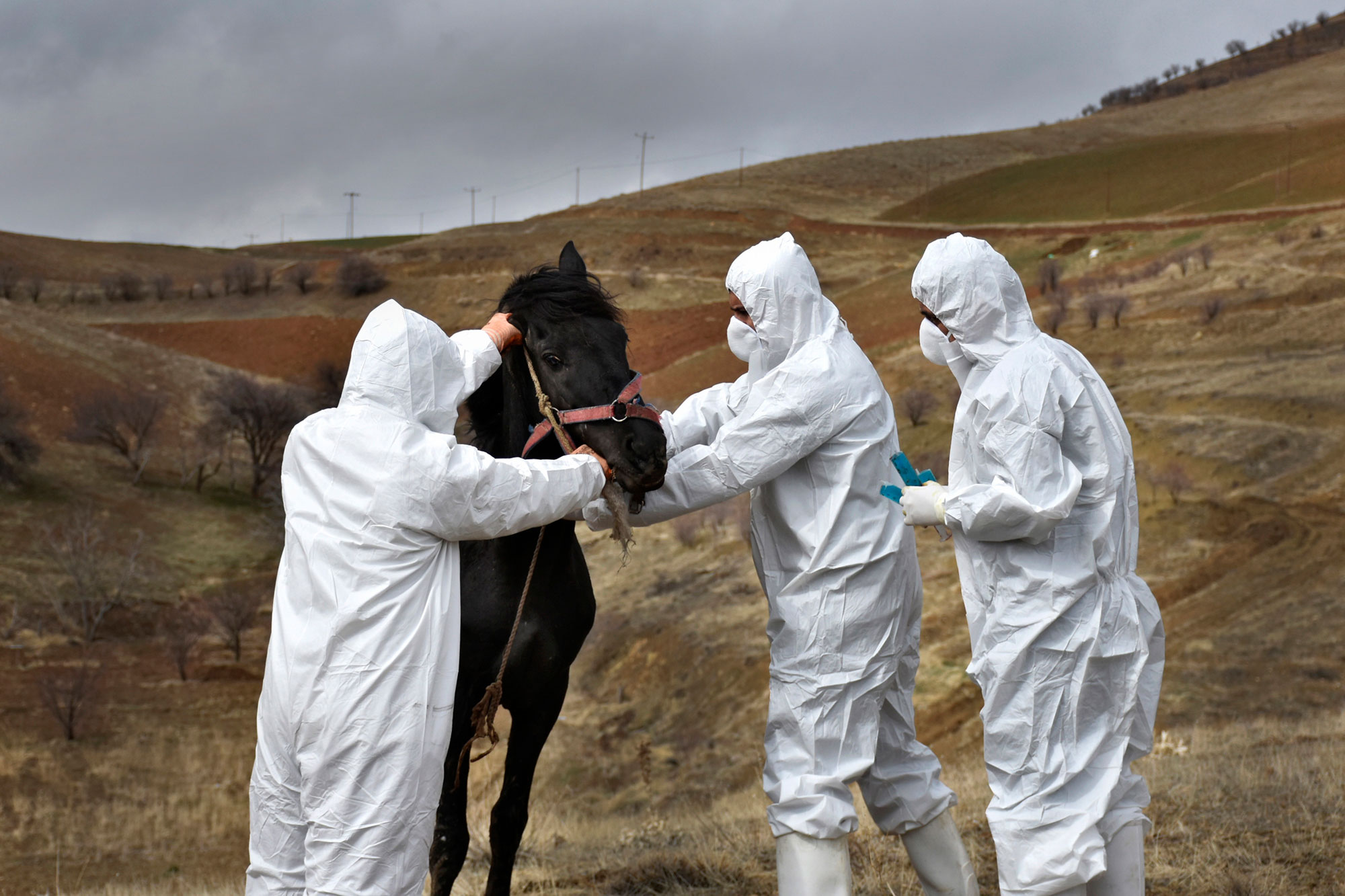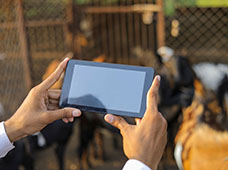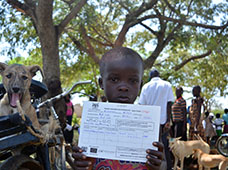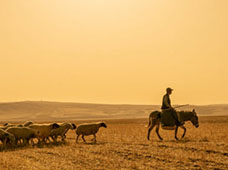INTERVIEW
Preventing
biothreats
The World Organisation for Animal Health (WOAH, founded as OIE) is partnering with INTERPOL, the International Criminal Police Organization to prevent biocrimes. Fanny Ewann is one of their officers specialised in bioterrorism prevention.
What is a biothreat?
F.E. A biothreat is the danger associated with the intent to release biological agents – viruses, bacteria or toxins – which can potentially cause harm to livestock populations, crops or humans. Animal pathogens, especially those that may also spread to humans, can also be used as weapons for committing crimes, or more precisely, agro-crime. This can be done for nefarious purposes such as financial gain or to create civil unrest or destabilize a government. In this case we speak of agro-terrorism.
Because biological agents are fairly cheap, easy to acquire and can be smuggled across borders undetected, the threat from agro-crime or agro-terrorism calls for global preparedness.
What could happen in the event of an agro-crime or agro-terrorism?
F.E. Crimes targeting livestock through the release of a pathogen could cause significant animal loss as well as the spread of disease into the human population, resulting in deadly epidemics. On top of its health and economic consequences, such an event could have a psychological effect by instilling fear and panic on a global scale. Terrorist groups might then exploit the situation to further their goals.
Weaponisable biological agents have been described as weapons of mass destruction because their potential devastating consequences. That being said, producing a functioning weapon out of biological agents requires specific knowledge and fortunately large-scale biological attacks have not occurred recently.
The most famous and recent example of bio-terrorism is when anthrax, a disease that can affect both humans and animals, was used in 2001 as a biological weapon to target individuals in the United States of America.
80 %
are of animal origin
%
Why do Veterinary Services and Law Enforcement agencies need to cooperate?
F.E. For any large-scale disease outbreak, many actors need to be involved in the response. And when diseases affect or originate in animals, Veterinary Services are the experts. Because disease outbreaks occur regularly, around the world, it can be difficult to determine their origin, whether they are natural or linked to intentional human activity, unless, of course, a hostile group claims to have released the biological agent. Animal health professionals are best suited to assess whether the cause of an outbreak is natural or not. If they have doubts or suspicions, they can alert the law enforcement authorities who will then launch a criminal investigation.
Law Enforcement officials, on the other hand, collect intelligence about criminal activities. If they learn of an impending threat, they can provide an early warning to Veterinary Services that will then be able to quickly intervene to contain the disease outbreak.
It is by combining the expertise of both Law Enforcement agencies and Veterinary Services that we can take the proper actions in a timely manner. In this way, we can limit the impact of the event or prevent it in the first place.

The animal health and public security communities have an important role to play in biothreat reduction by planning, preparing, and effectively dealing with intentional animal disease outbreaks through coordinated actions.
How is INTERPOL working with the World Organisation for Animal Health to tackle biothreats?
F.E. First of all, WOAH, INTERPOL and the Food and Agriculture Organization of the United Nations (FAO) have joined forces under the project “Building resilience against agro-crime and agro-terrorism”. This initiative aims to foster mutual understanding and collaboration between Law Enforcement and Veterinary Services.
Bringing Veterinary Services and Law Enforcement agencies together at national and regional levels will improve a general understanding of the threats, help local actors recognise the benefits of collaboration, and identify the challenges that need to be overcome in order to be better prepared to respond to agro-crimes.
On an international level, we are working together to increase the flow of information and expertise between networks of experts in the field. Since 2021 for instance, through a pilot emergency management exchange programme, we have linked the Members of the World Organisation for Animal Health using the “twinning” principle, so that two countries can tightly collaborate in the context of emergency management. Six such partnerships have been agreed upon, totaling 12 participating countries spanning all regions of the world.
WOAH has also provided INTERPOL with information on African swine fever (ASF) that was turned into specific messaging relating to Law Enforcement duties.
Prevention depends on appropriate import policies and border controls to ensure that neither infected live pigs nor pork products are introduced into ASF-free areas. There is no approved vaccine against ASF. Therefore, Law Enforcement agencies must monitor and report any trade of illegal and falsified ASF vaccines within and across borders.

Because biological agents are fairly cheap, easy to acquire and can be smuggled across borders undetected, the threat from agro-crime or agro-terrorism calls for global preparedness.
What are the next steps in this collaboration?
F.E. Among other activities, we have been preparing “Exercise Phoenix”, a large-scale simulation of an intentional animal disease outbreak that will be held in November 2022. This joint exercise involving INTERPOL, WOAH and FAO will put our preparedness to test, highlight our weaknesses and help us improve our response at regional and international levels.
We are also focused on a long-term collaboration between WOAH and INTERPOL. A Memorandum of Understanding has been signed at the beginning of 2022 to better help our respective Members face the threats posed by actors of agro-crime and agro-terrorism in the years to come.
Funding for the “Building resilience against agro-crime and agro-terrorism” project: Global Affairs Canada.
ALSO READ

Leveraging technology to support Veterinary Services
Discover

Tackling disease outbreaks
Discover

Engaging for climate
Discover
